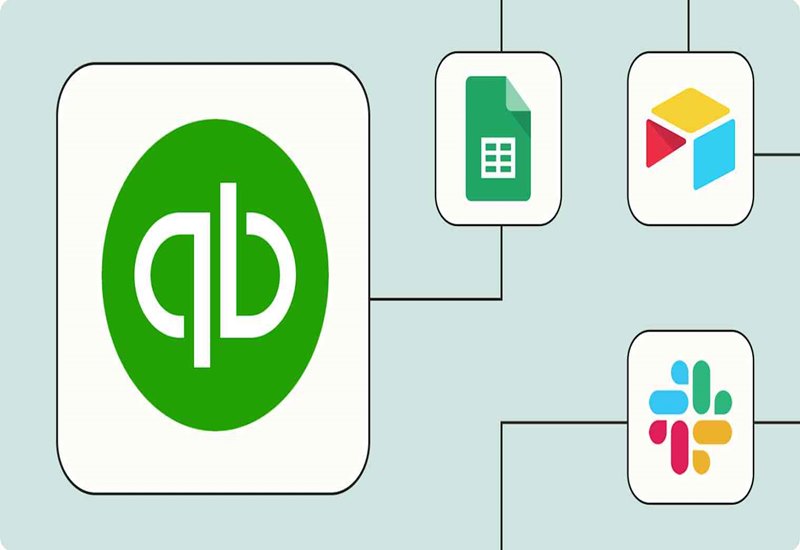QuickBooks is a versatile accounting tool that simplifies financial management for businesses of all sizes. Billing clerks, in particular, benefit from features that automate tasks, reduce errors, and save time. Here are the top QuickBooks features every billing clerk should know:
- Invoicing and Payment Tracking: QuickBooks enables you to create professional, customized invoices. It tracks payments and sends automatic reminders for overdue bills, ensuring cash flow remains consistent.
- Expense Tracking: Easily categorize and monitor expenses by connecting your bank accounts and credit cards. QuickBooks automatically imports transactions, making it easier to manage expenses.
- Real-Time Reporting: With detailed reports, you can track profitability, cash flow, and other key financial metrics. Customizable dashboards provide a snapshot of your financial health at any time.
- Payroll Management: QuickBooks Payroll streamlines the payroll process by calculating wages, taxes, and deductions automatically. Direct deposit and employee self-service portals enhance efficiency.
- Tax Preparation Tools: QuickBooks organizes financial data to simplify tax preparation. It categorizes expenses, tracks deductible items, and integrates with tax filing software to reduce stress during tax season.
Understanding these features can help billing clerks work more efficiently and contribute to the financial stability of their businesses.
How to Track Expenses and Income with QuickBooks
Accurate tracking of expenses and income is essential for any business. QuickBooks simplifies this process through automation and intuitive tools. Here’s how you can use QuickBooks to manage your financial transactions:
- Link Your Accounts: Connect your bank accounts and credit cards to QuickBooks. The software automatically imports and categorizes transactions, saving time and ensuring accuracy.
- Categorize Transactions: QuickBooks allows you to assign transactions to specific categories such as rent, utilities, or supplies. This helps organize your expenses and provides clear insights into spending patterns.
- Create Income Records: Record payments received from customers and match them to invoices. This ensures that income is accurately tracked and reconciled.
- Generate Financial Reports: Use QuickBooks’ reporting tools to view detailed summaries of your income and expenses. Reports such as Profit & Loss Statements and Cash Flow Statements help identify trends and assess financial health.
- Monitor Budgets: QuickBooks enables you to set budgets and compare them against actual spending. This feature helps you stay on track financially and make informed decisions.
By leveraging these tools, billing clerks can manage their company’s finances effectively and ensure accurate records for reporting and analysis.
Streamlining Payroll Using QuickBooks Payroll Features
Payroll management can be a time-consuming task, but QuickBooks Payroll simplifies it with automation and user-friendly features. Here’s how billing clerks can streamline payroll using QuickBooks:
- Automated Calculations: QuickBooks automatically calculates employee wages, taxes, and deductions. It ensures compliance with federal, state, and local tax regulations.
- Direct Deposit: Employees can receive their paychecks directly into their bank accounts, eliminating the need for physical checks. This enhances convenience and reduces administrative work.
- Employee Self-Service Portal: QuickBooks provides employees with access to a portal where they can view pay stubs, W-2 forms, and other payroll information. This reduces the number of inquiries and increases transparency.
- Tax Filing: QuickBooks files payroll taxes on your behalf, ensuring timely and accurate submissions. It also generates tax forms like W-2s and 1099s for employees and contractors.
- Time Tracking Integration: Integrate time tracking tools with QuickBooks to ensure accurate payroll based on employee hours. This feature is particularly useful for businesses with hourly workers.
Using QuickBooks Payroll not only saves time but also minimizes errors and ensures compliance with payroll regulations.
How to Use QuickBooks for Tax Preparation
Tax season can be stressful, but QuickBooks simplifies the process with features designed to organize financial data and ensure compliance. Here’s how billing clerks can use QuickBooks for tax preparation:
- Organize Financial Data: QuickBooks categorizes income and expenses throughout the year, making it easy to identify deductible items. Accurate records reduce the risk of errors during filing.
- Generate Tax Reports: QuickBooks provides reports such as Profit & Loss Statements, Balance Sheets, and Expense Summaries. These reports give you a clear overview of your financial position.
- Track Tax Deductions: QuickBooks identifies tax-deductible expenses like office supplies, travel costs, and equipment purchases. This ensures you maximize deductions and minimize liabilities.
- Integrate with Tax Software: QuickBooks integrates with popular tax software like TurboTax, enabling seamless data transfer. This reduces manual entry and speeds up the filing process.
- File Quarterly Taxes: For businesses required to pay quarterly taxes, QuickBooks helps calculate estimated payments and keeps track of deadlines, ensuring compliance with IRS regulations.
By utilizing these tools, billing clerks can prepare taxes efficiently and avoid last-minute hassles. QuickBooks ensures that financial records are accurate, organized, and ready for filing, making tax season a breeze.
QuickBooks offers billing clerks a comprehensive solution to manage essential financial tasks. From tracking expenses to preparing taxes, its features save time, reduce errors, and enhance productivity. By understanding and utilizing these tools, billing clerks can ensure the financial success of their businesses.



